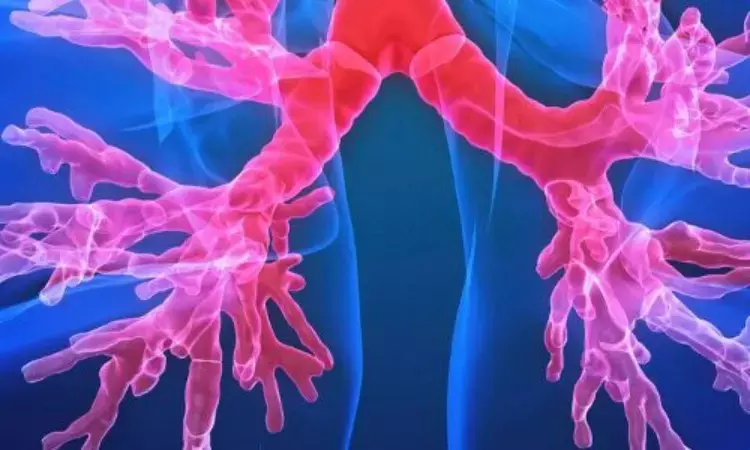- Home
- Medical news & Guidelines
- Anesthesiology
- Cardiology and CTVS
- Critical Care
- Dentistry
- Dermatology
- Diabetes and Endocrinology
- ENT
- Gastroenterology
- Medicine
- Nephrology
- Neurology
- Obstretics-Gynaecology
- Oncology
- Ophthalmology
- Orthopaedics
- Pediatrics-Neonatology
- Psychiatry
- Pulmonology
- Radiology
- Surgery
- Urology
- Laboratory Medicine
- Diet
- Nursing
- Paramedical
- Physiotherapy
- Health news
- Fact Check
- Bone Health Fact Check
- Brain Health Fact Check
- Cancer Related Fact Check
- Child Care Fact Check
- Dental and oral health fact check
- Diabetes and metabolic health fact check
- Diet and Nutrition Fact Check
- Eye and ENT Care Fact Check
- Fitness fact check
- Gut health fact check
- Heart health fact check
- Kidney health fact check
- Medical education fact check
- Men's health fact check
- Respiratory fact check
- Skin and hair care fact check
- Vaccine and Immunization fact check
- Women's health fact check
- AYUSH
- State News
- Andaman and Nicobar Islands
- Andhra Pradesh
- Arunachal Pradesh
- Assam
- Bihar
- Chandigarh
- Chattisgarh
- Dadra and Nagar Haveli
- Daman and Diu
- Delhi
- Goa
- Gujarat
- Haryana
- Himachal Pradesh
- Jammu & Kashmir
- Jharkhand
- Karnataka
- Kerala
- Ladakh
- Lakshadweep
- Madhya Pradesh
- Maharashtra
- Manipur
- Meghalaya
- Mizoram
- Nagaland
- Odisha
- Puducherry
- Punjab
- Rajasthan
- Sikkim
- Tamil Nadu
- Telangana
- Tripura
- Uttar Pradesh
- Uttrakhand
- West Bengal
- Medical Education
- Industry
High-sensitivity CRP level predicts bronchiectasis exacerbation risk: Study

China: Baseline serum high-sensitivity C-reactive protein (hs-CRP) level at a stable state can predict the risk of bronchiectasis exacerbation, which indicates low-grade inflammation in bronchiectasis, a recent study in BMC Pulmonary Medicine has shown. High-sensitivity CRP is a simple blood test which is readily available in many healthcare facilities.
"Over a one-year follow-up period in the study comprising non-cystic fibrosis (CF) bronchiectasis patients, increased hs-CRP was significantly associated with a twofold increased risk of developing any bronchiectasis exacerbation (adjusted odds ratio [aOR] = 2.254)," the researchers wrote. Furthermore, the researchers observed a borderline significant association with an almost twofold increased risk of hospitalized bronchiectasis exacerbation (aOR=1.985).
The primary pathogenesis of non-cystic fibrosis bronchiectasis involves airway inflammation, abnormal mucus clearance and bacterial colonization, leading to progressive airway destruction and distortion.
Previous studies have shown the elevation of systemic inflammatory markers to correlate with increased disease extent, reduced lung function and higher risk of future severe exacerbations in bronchiectasis patients.
A significant correlation of circulating hs-CRP levels with HRCT (high-resolution computed tomography) scores and resting oxygen saturation in patients with stable-state non-CF bronchiectasis was suggested, there is a lack of data on the relationship between hs-CRP and the prognosis of bronchiectasis, and there is a little data on the role of hs-CRP in predicting bronchiectasis exacerbation.
To fill this knowledge gap, James Chung-man HO, The University of Hong Kong, Queen Mary Hospital, Pokfulam, Hong Kong Special Administrative Region, China, and colleagues aimed to assess the association between hs-CRP level and the risks of bronchiectasis exacerbation.
For this purpose, they conducted a prospective study on Chinese patients with non-CF bronchiectasis from 1st October to 31st December 2021. Baseline serum hs-CRP was obtained at a stable state. The follow-up time lasted for one year. Co-primary endpoints included the development of any bronchiectasis exacerbation and hospitalized bronchiectasis exacerbation. A total of 123 patients were included.
The study showed that higher hs-CRP was associated with an increased risk of developing bronchiectasis exacerbation, adjusted odds ratio (aOR) of 2.254, and borderline significantly increased hospitalized bronchiectasis exacerbation with aOR of 1.985.
"Baseline serum hs-CRP level at stable state can predict bronchiectasis exacerbation in the subsequent year. This supports the role of chronic low-grade inflammation in bronchiectasis, as indicated by hs-CRP level, in association with bronchiectasis exacerbation risk," the research team concluded.
Reference:
Kwok, W.C., Teo, K.C., Lau, K.K. et al. High-sensitivity C-reactive protein level in stable-state bronchiectasis predicts exacerbation risk. BMC Pulm Med 24, 80 (2024). https://doi.org/10.1186/s12890-024-02888-z
Dr Kamal Kant Kohli-MBBS, DTCD- a chest specialist with more than 30 years of practice and a flair for writing clinical articles, Dr Kamal Kant Kohli joined Medical Dialogues as a Chief Editor of Medical News. Besides writing articles, as an editor, he proofreads and verifies all the medical content published on Medical Dialogues including those coming from journals, studies,medical conferences,guidelines etc. Email: drkohli@medicaldialogues.in. Contact no. 011-43720751


